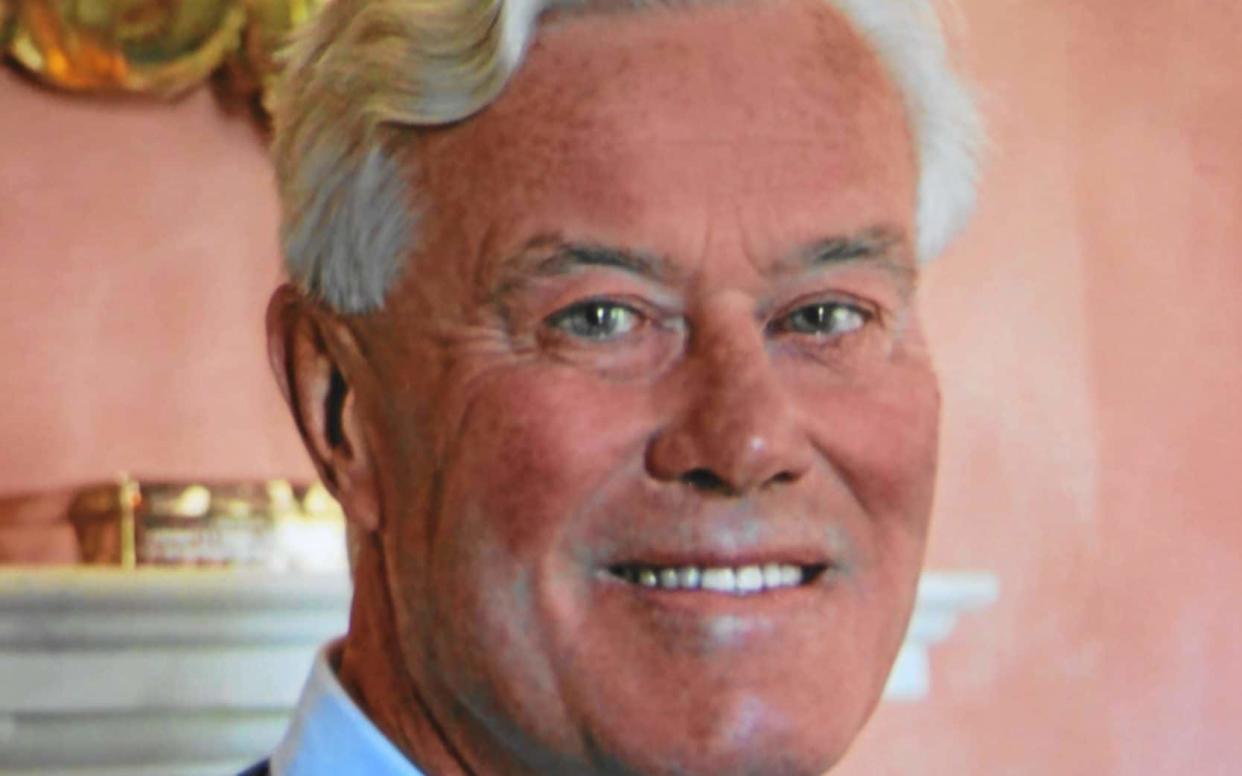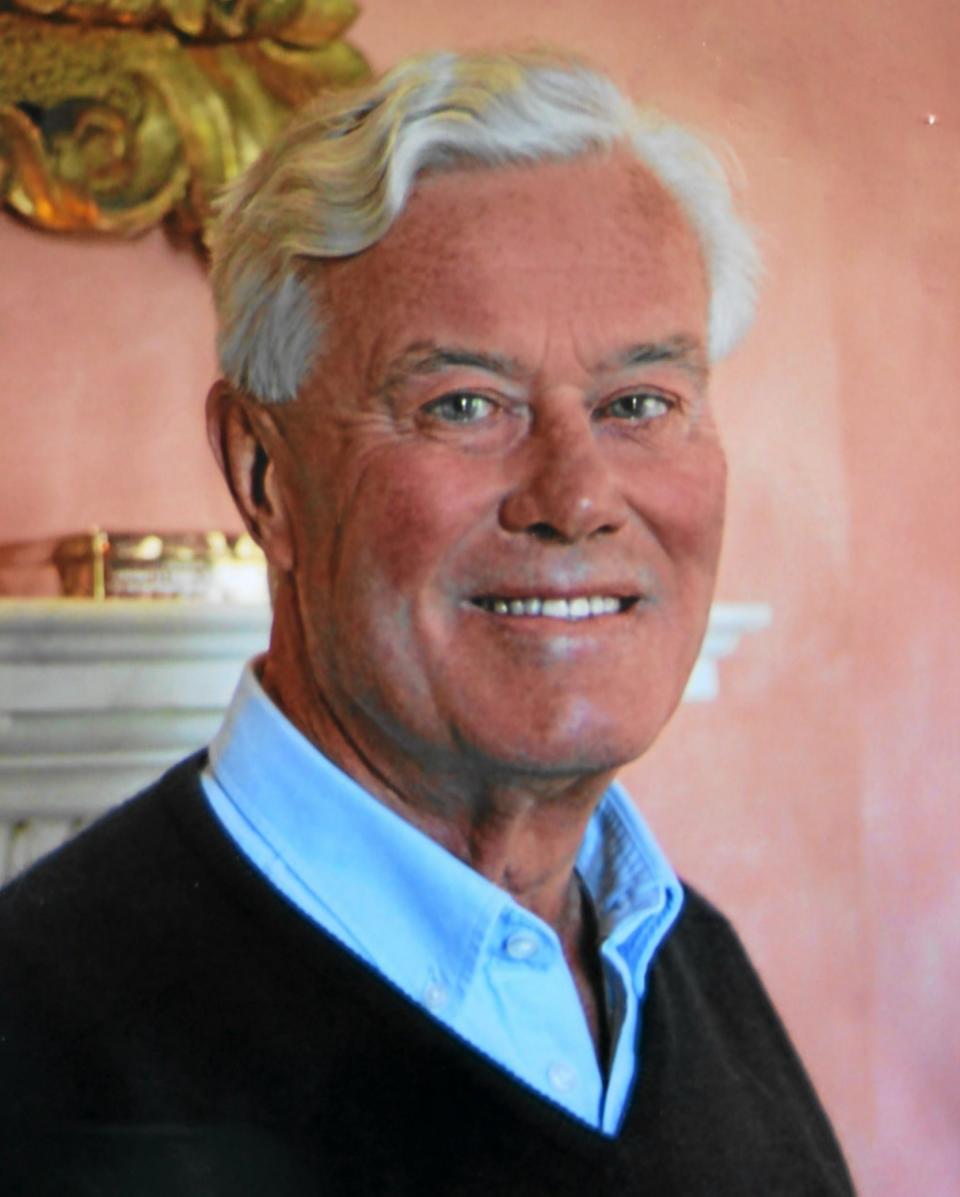David Reid Scott, suave financier who became a leading City figure following the Big Bang – obituary

David Reid Scott, who has died aged 73, was a charismatic financier who helped to reshape the City of London in the post-Big Bang era. He devoted much of the wealth he acquired there to the restoration of his ancestral estate in Ireland.
Reid Scott made his name first as an adviser to Saudi Arabia on the investment of its oil revenues and later as a partner of the advisory firm Phoenix Securities. Founded by the former Warburg banker John Craven, Phoenix brokered a succession of mergers and takeovers made possible by the mid-1980s reforms known as “Big Bang”. These allowed large banks, many of them foreign, to buy up Stock Exchange firms in order to create powerful new conglomerates.
Reid Scott was well-suited to the role of the suave but shrewd persuader who guided many members of the City’s old guard into this globalised new world, often enriching them in the process. Among the later deals in which he played a role were the sales of the City’s largest remaining independent stockbroker Smith New Court to Merrill Lynch in 1995, and of the fund manager Gartmore to NatWest in 1996. Over the course of his career, he reckoned to have had a hand in 175 major transactions of all kinds.
After several changes of ownership of their own business, the Phoenix team eventually found themselves part of Credit Suisse First Boston, where Reid Scott became a vice-chairman in 2000. But he always preferred small firms, where he could have “a very direct impact” over larger ones, which he regarded as “hell to manage and not much fun to work in”. Reid Scott’s last high-profile appointments were as chairman of another advisory boutique, Hawkpoint, until 2009, and of the wealth manager Stonehage until 2014.
But throughout his City career his heart remained in his native Ireland, where at the age of 24 he had inherited from his maternal grandfather the dilapidated Georgian mansion of Ballynure, noted in Ireland’s National Inventory of Architectural Heritage as “one of [Co Wicklow’s] most memorable examples of early 1800s architecture” – and of which Reid Scott said: “Thank God the Victorians never got at it.”
With it came a bankrupt farm, a £60,000 overdraft and buckets to catch the rain pouring through the roof. His driving ambition thereafter was to earn enough to bring the property back to its full potential and beauty. Over three decades he comprehensively completed that project, not only restoring and refurnishing the house but regenerating the surrounding gardens, woodland and lakes.
David Reid Scott was a master of 20th-century finance but was in many ways an 18th-century figure: a handsome, high-energy bon viveur and generous host who loved, as one friend put it, “a joke, a glass and a party”; a risk-taker with a stubborn streak and what he called “the jugular instinct”, but one who also knew how to lose well; and a dashing sportsman.
Foxhunting was one of his passions, chiefly with the Heythrop in England – but it was during an outing with the Beaufort that his horse made a huge leap that caused its head to come up and whack him under the chin, leaving him bleeding from the mouth and showing signs of concussion. Did he stop? “Hell, no,” came the reply. “Best day’s hunting I’ve had in years.”
David Alexander Carroll Reid Scott was born in Dublin on June 5 1947 to Major Alexander Reid Scott, 11th Hussars, and Ann Mitchell, whose forebears were connected by marriage to the Carroll family, who had rebuilt Ballynure, having been seated there since the original grant of land in 1617. Ann died in a hunting accident on Christmas Eve 1953; after Alexander died of cancer six years later, David and his younger brother Malise were brought up by their stepmother in Leicestershire and their grandparents in Ireland.
At Eton David was an all-round sportsman, captain of rugby as a tireless No 8, and elected to Pop. He went on to read Modern History at Lincoln College, Oxford, where he was a member of the riotous Bullingdon Club.
Graduating in 1969, determined to work abroad, he joined the US investment bank White Weld (later part of Credit Suisse White Weld) in New York, initially as an equity salesman. After a spell in London he returned to New York as a protégé of David Mulford, the firm’s international head (and later US ambassador to India) who in 1978 persuaded Reid Scott to join him on a mission to advise the Saudi Arabian Monetary Authority in Jeddah.
As the oil-rich kingdom’s reserves ballooned, an initial two-year assignment turned into a five-year stay for Reid Scott and his young family. The small expatriate team was responsible for investing up to $15 billion a month in international bonds and shares, making them the world’s largest investor at the time.

They worked in fierce heat and primitive conditions. “We used telexes because you couldn’t do it on the phone,” Reid Scott recalled, “with rats running around the sides of the room” – but the role equipped him with a formidable network of contacts, the investor acting as a “honeypot” for other bankers from all over the world.
By the time he returned to London, Credit Suisse White Weld had become part of the giant Merrill Lynch, which he found “a horrible place to work”. He was glad to receive a call from Craven inviting him to join Phoenix in 1985.
Two years later, Phoenix was bought by Morgan Grenfell, chiefly to secure the services of Craven – but it was sold back to its remaining partners by Morgan Grenfell’s new German owners at a much lower price in 1990. It was later bought again at a rich price by the US firm of Donaldson, Lufkin & Jenrette, which became part of Credit Suisse First Boston.
That in turn prompted Reid Scott’s move to Hawkpoint, which was acquired in 2006 by the brokers Collins Stewart Tullett. This acquisition brought Reid Scott the last in a succession of ample windfalls that funded the renaissance of Ballynure.
He built a holiday home on Vamizi Island in Mozambique, where he enjoyed fishing and became involved in protecting the environment, and kept racehorses with the Irish trainer Jessica Harrington. As a fellow of Eton he chaired the school’s investment committee. He also chaired the Jack and Jill Children’s Foundation charity in Ireland.
A fall in Spain last year left David Reid Scott paralysed and in hospital, an ordeal he bore with courage. He married Anne Clouet des Pesruches in 1972; she died of cancer in 1988 and he married, secondly, Clare McMullen (née Straker) in 1997. She survives him with their son and three daughters of his first marriage.
David Reid Scott, born June 5 1947, died July 11 2020

